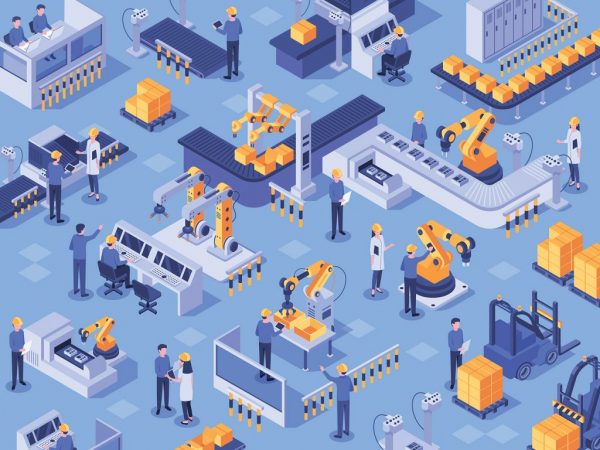
CNC Industries operating at full speed due to to rapid antigen testing at its manufacturing facilities
by Sadi Muktadir
It is increasingly important for manufacturers to have a disaster recovery plan, and to implement the infrastructure that will make operations resilient in the face of supply shortages and global pandemics.

PHOTO: Manufacturing/Getty Images
When the pandemic first hit Canada in March of 2020, manufacturing was quickly deemed an essential industry, and thus allowed to continue operations. However, this did not mean there were no drawbacks. Production was limited, many manufacturers, including CNC Industries Ltd., brought in respirators and masks for staff to limit the spread of COVID-19. Shifts were staggered, social distancing measured were placed, and sanitizer pumps and stations were installed in an effort to limit the virus’ spread.
Infrastructure costs increased due to the need to split up factory production into multiple shifts, limiting staff’s access to the plant floor, and the Canadian government and industries quickly realized that these types of solutions were unfeasible in the long-term.
Enter the BD Veritor™ Plus System.
The Canadian government placed an open call for technologies and solutions that would help essential industries bounce back faster, and BD developed a rapid antigen test for the COVID-19 virus that provides results in 15 minutes.
The mid-nasal swab allows for an easy collection of patient samples and can be done by anyone trained to use the system. A new person can be tested once every 3 minutes. Perry Gill, CEO of CNC Industries recognized its utility right away.
“A colleague I knew already had daily ongoing testing happening at his business and I was curious about what they were doing,” says Perry Gill. “I knew BD was invested in through the federal government and were available for any workplace and it was just the next logical step for us.”
CNC Industries is currently testing its employees at least once a week, and increasing their commitment to safety through iPads and devices to limit close quarters contact. With the economy reopening, businesses across all manufacturing sectors are investing in the extra and necessary infrastructure costs of implementing similar rapid antigen testing, as well as Industry 4.0 trends to become more resilient.
“We’re seeing interest from manufacturing sectors across all industries,” says Ivy Parks, VP of BD Life Sciences – Integrated Diagnostic Solutions in Canada. “Because testing is now decentralized, and only minimal training is required to administer the kits, it’s much more accessible to employees everywhere. We’re happy to see that the manufacturing industry across all sectors is among the leaders in the adoption of rapid antigen testing kits for COVID-19.”
When asked if the extra costs of operating a safe factory floor through additional precautionary measures is a permanent change, Perry Gill was clear.
“The pandemic definitely made us more aware of how important it was to maintain our working capital. We had to invest in keeping our workforce safe, so we cut unnecessary spending, we restructured our debt, and we were able to implement necessary measures to keep us safe. It’s important for manufacturers to recognize what’s ahead of them, and not deal with it when it arrives, but deal with it today,” he says.
Meaning that it is increasingly important for manufacturers to have a disaster recovery plan, and to implement the infrastructure that will make operations resilient in the face of supply shortages and global pandemics. As a side effect, we’re seeing Industry 4.0 tools pick up steam through this implementation, and leading to a more efficient business overall.